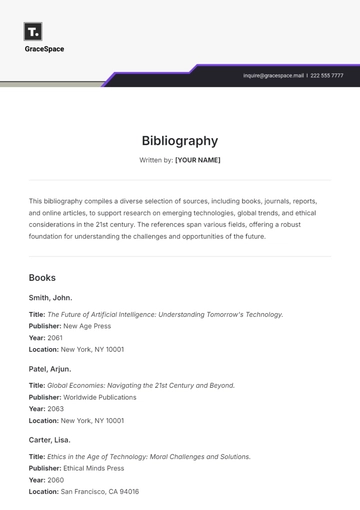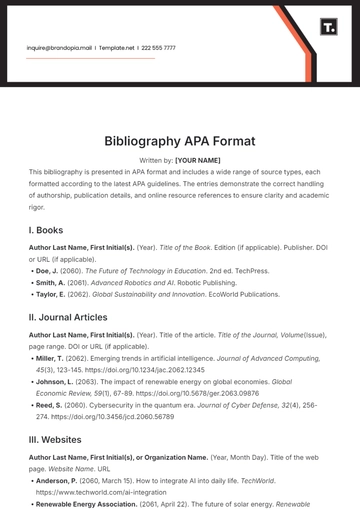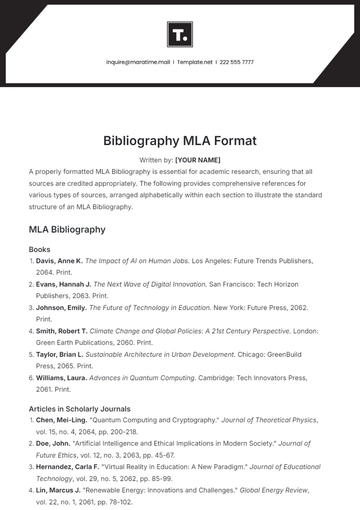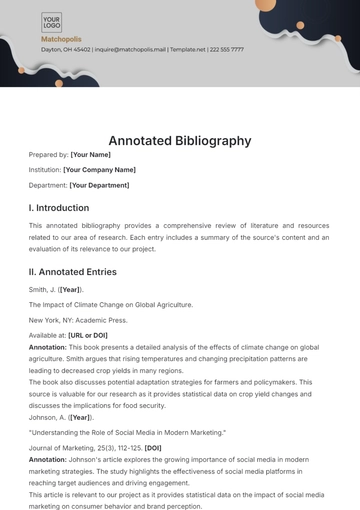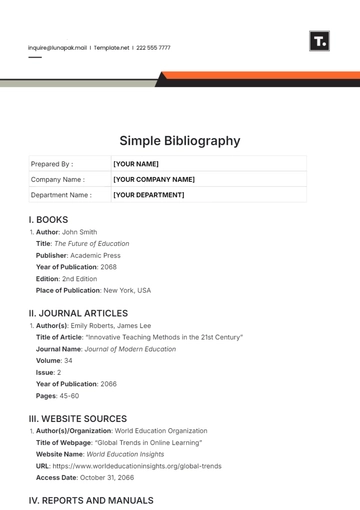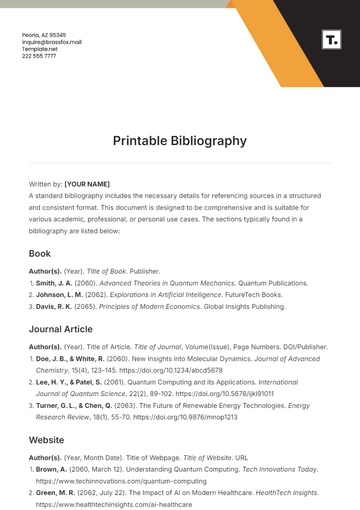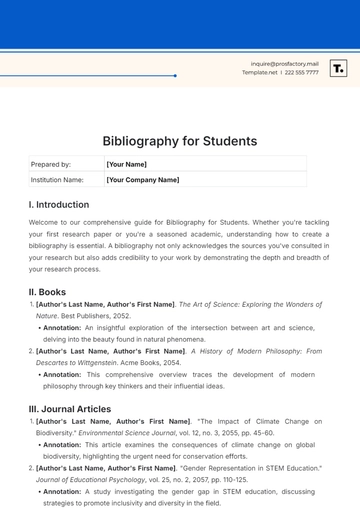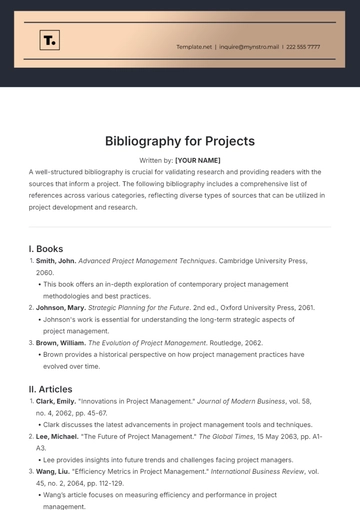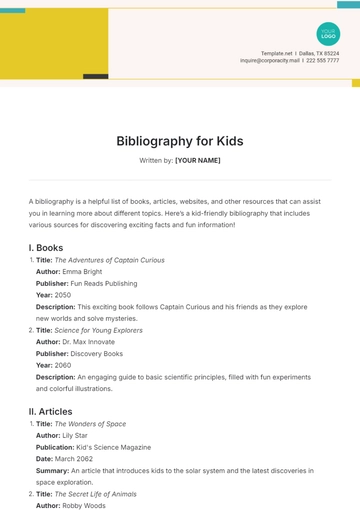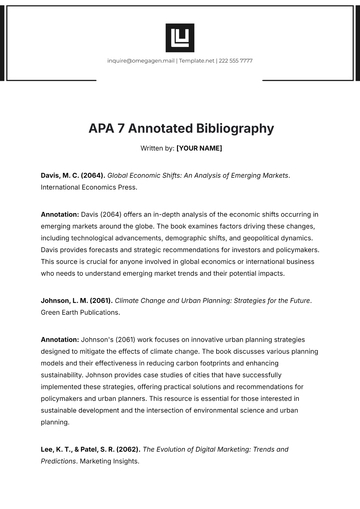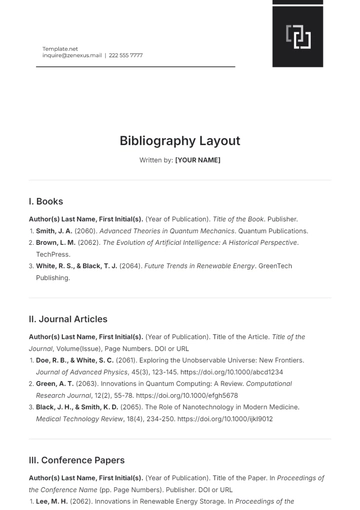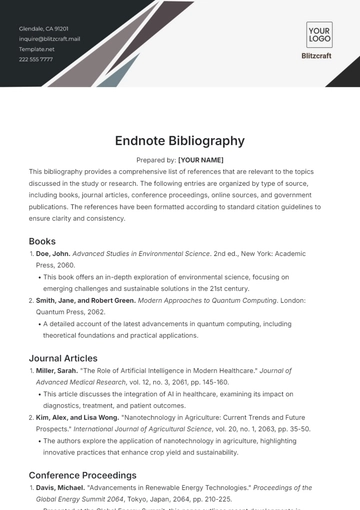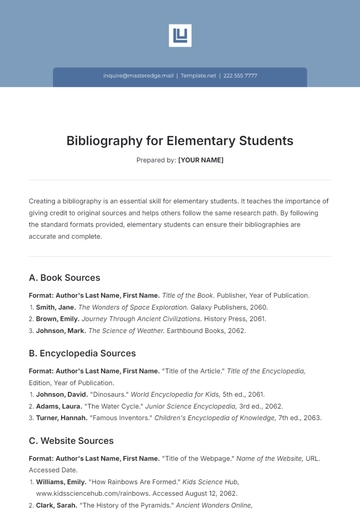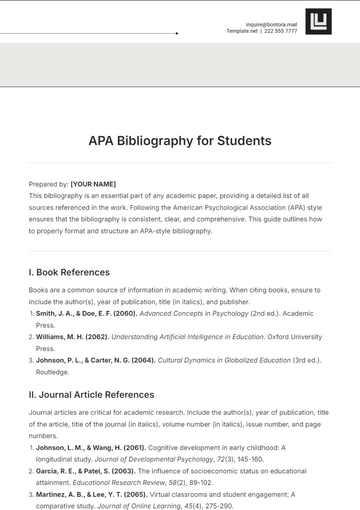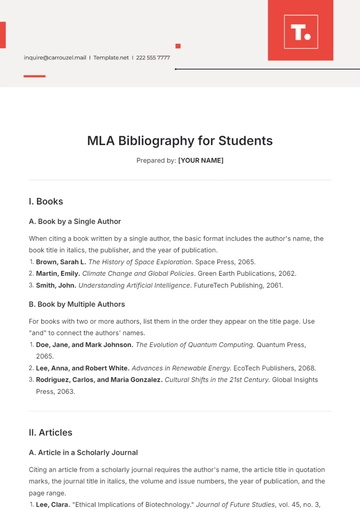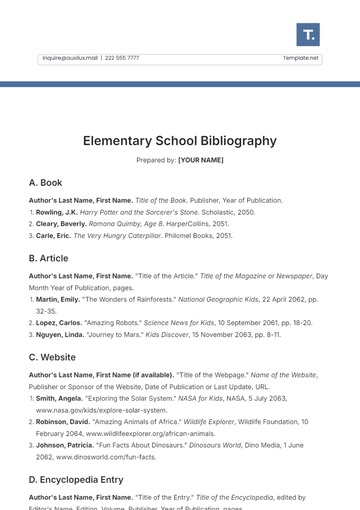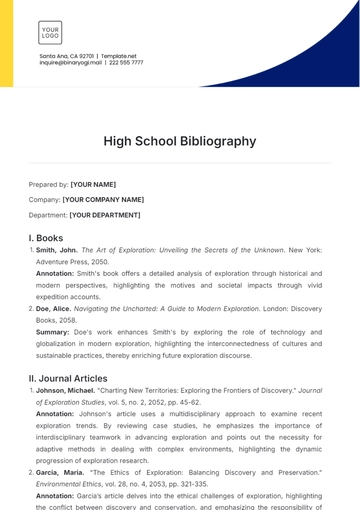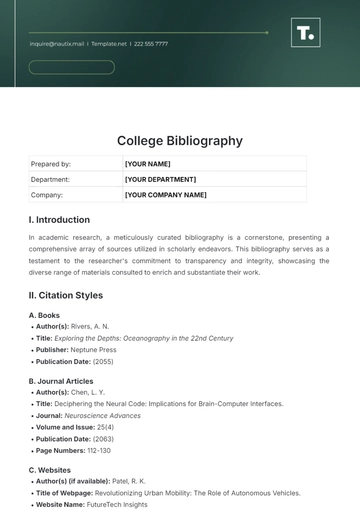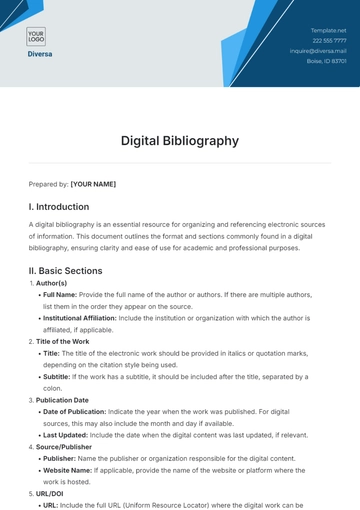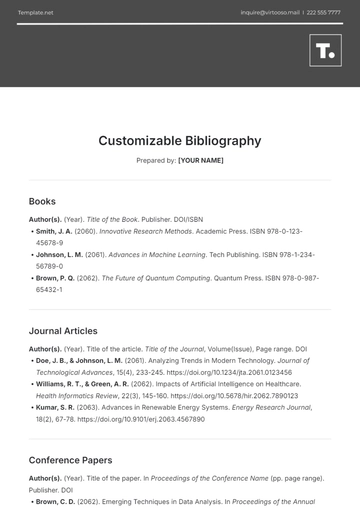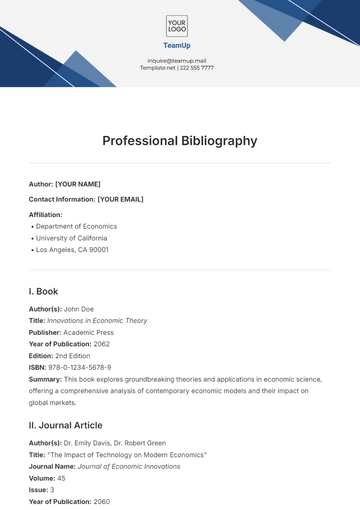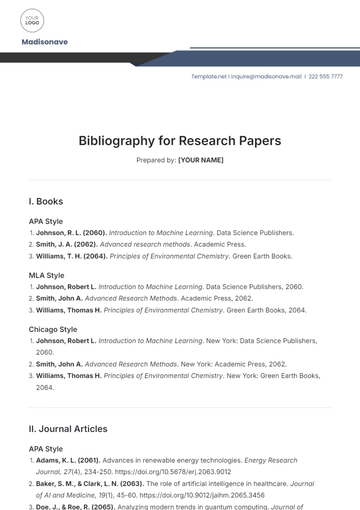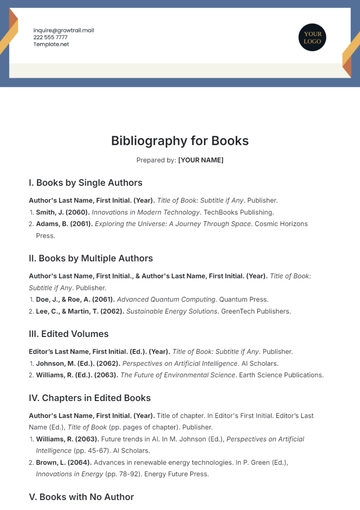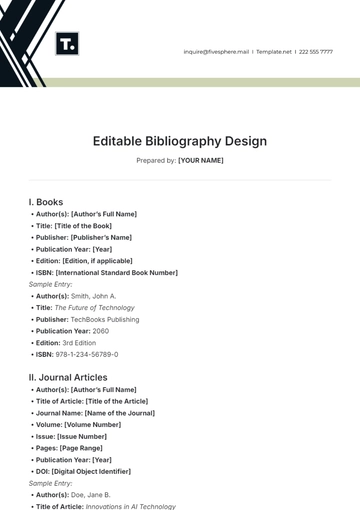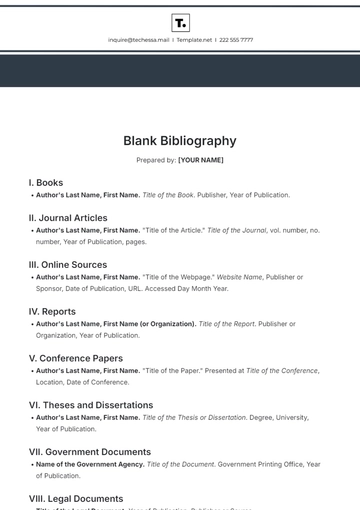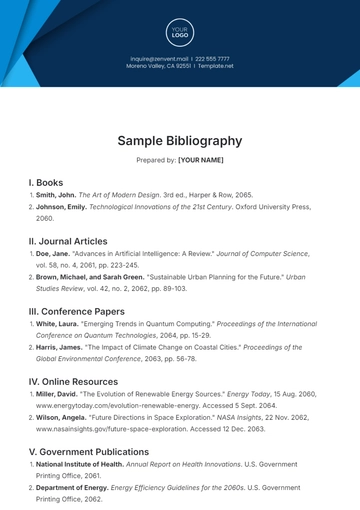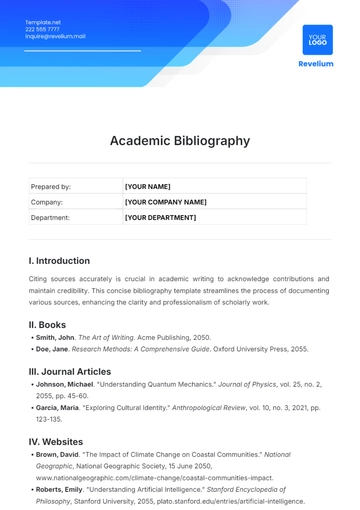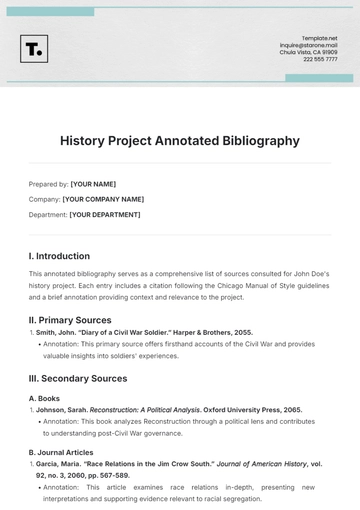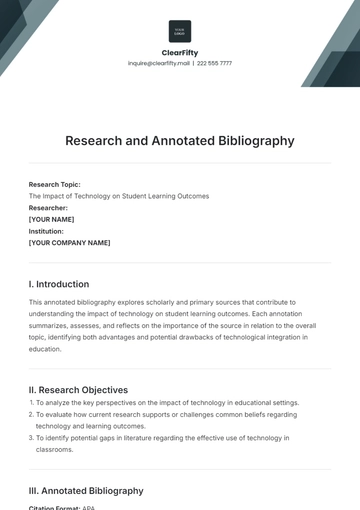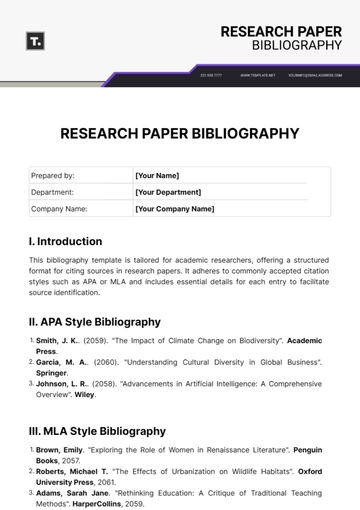Free Law Bibliography
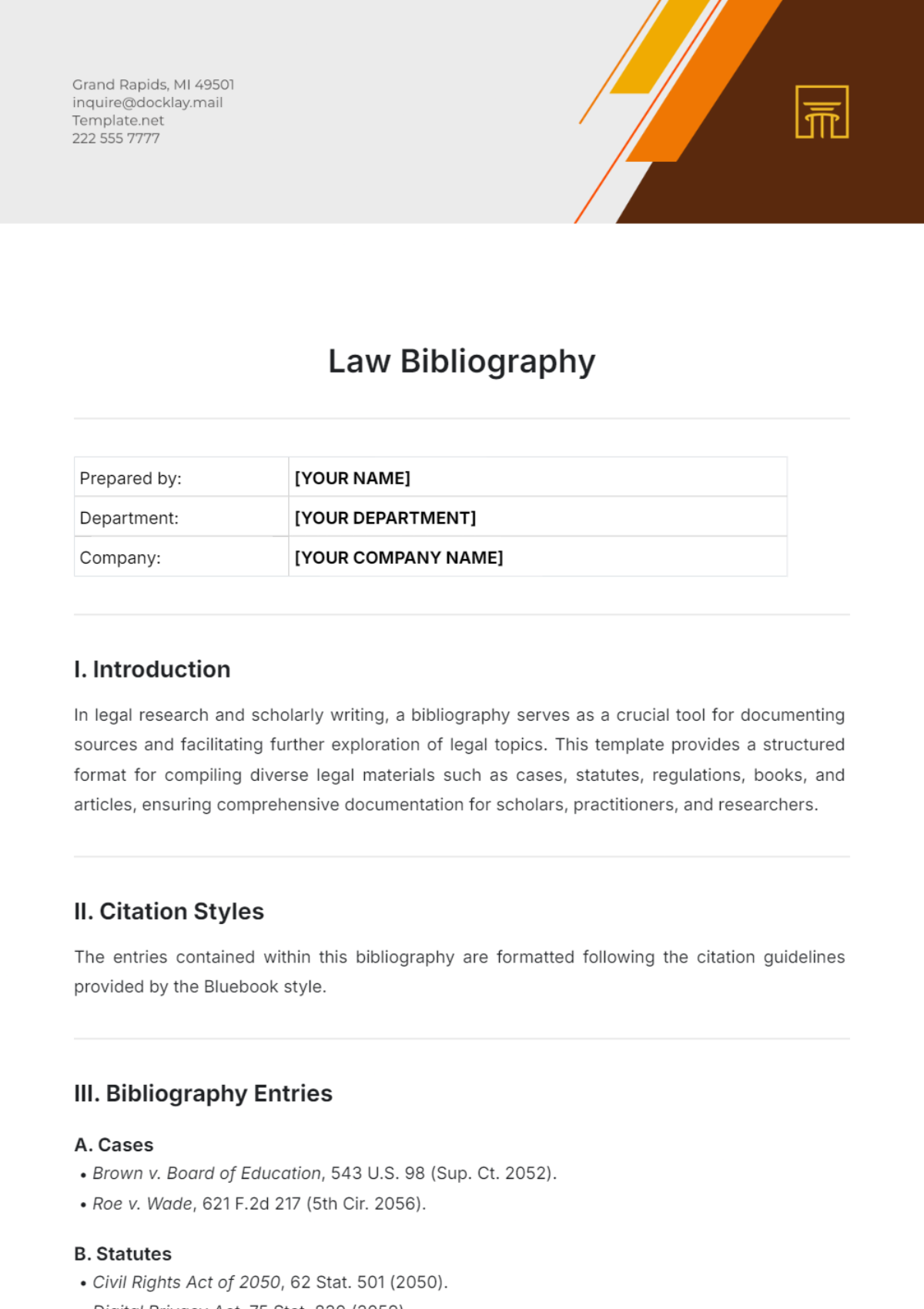
Prepared by: | [YOUR NAME] |
Department: | [YOUR DEPARTMENT] |
Company: | [YOUR COMPANY NAME] |
I. Introduction
In legal research and scholarly writing, a bibliography serves as a crucial tool for documenting sources and facilitating further exploration of legal topics. This template provides a structured format for compiling diverse legal materials such as cases, statutes, regulations, books, and articles, ensuring comprehensive documentation for scholars, practitioners, and researchers.
II. Citation Styles
The entries contained within this bibliography are formatted following the citation guidelines provided by the Bluebook style.
III. Bibliography Entries
A. Cases
Brown v. Board of Education, 543 U.S. 98 (Sup. Ct. 2052).
Roe v. Wade, 621 F.2d 217 (5th Cir. 2056).
B. Statutes
Civil Rights Act of 2050, 62 Stat. 501 (2050).
Digital Privacy Act, 75 Stat. 820 (2059).
C. Regulations
Federal Communications Commission Regulations, 35 C.F.R. § 210 (2055).
Environmental Protection Agency Rules, 40 C.F.R. § 150 (2057).
D. Books
John Doe, Constitutional Law: A Comprehensive Analysis (Legal Scholars Publ'g 2054).
Emily Johnson, Criminal Justice Reform: A Comparative Study (Oxford U. Press 2053).
E. Articles
Jane Smith, "Challenges in Environmental Law," 28 J. Envtl. L. 102 (2058).
Michael Brown, "The Future of Legal Education," 125 Harv. L. Rev. 321 (2060).
IV. Annotations
Cases: Provides summaries highlighting key legal principles or decisions, aiding in understanding the case's significance.
Statutes: Includes explanatory notes on the legislative context and significant provisions, offering insights into the intent and impact of the statute.
Regulations: Offers insights into regulatory frameworks and implications for legal practice, providing context for understanding regulatory compliance.
Books: Summarizes the book's content, relevance, and contribution to legal scholarship, assisting readers in assessing its usefulness for research.
Articles: Outlines the article's main arguments, methodology, and relevance to the research topic, aiding in evaluating its scholarly merit.
V. Conclusion
This bibliography template aims to enhance the accessibility and usability of legal research materials, empowering scholars, practitioners, and researchers in their endeavors to explore and analyze diverse legal topics.
- 100% Customizable, free editor
- Access 1 Million+ Templates, photo’s & graphics
- Download or share as a template
- Click and replace photos, graphics, text, backgrounds
- Resize, crop, AI write & more
- Access advanced editor
Introducing the Law Bibliography Template from Template.net, designed for legal scholars and professionals. This editable and customizable template simplifies the organization of legal references with precision. Tailor it effortlessly to your specific needs—it's editable in our Ai Editor Tool. Elevate your legal research and presentations with ease using the Law Bibliography Template, your key to academic and professional success.
